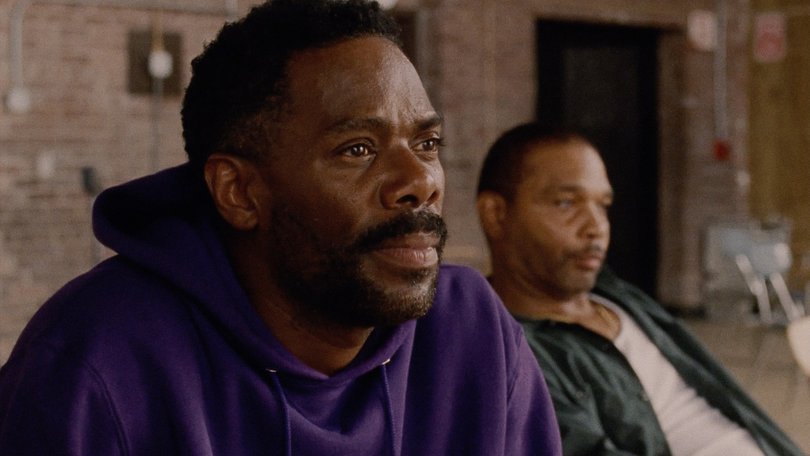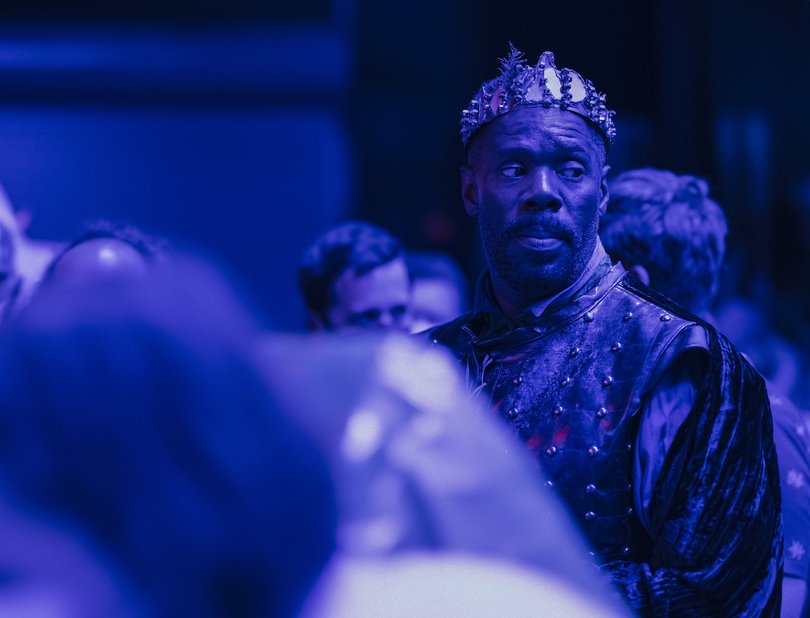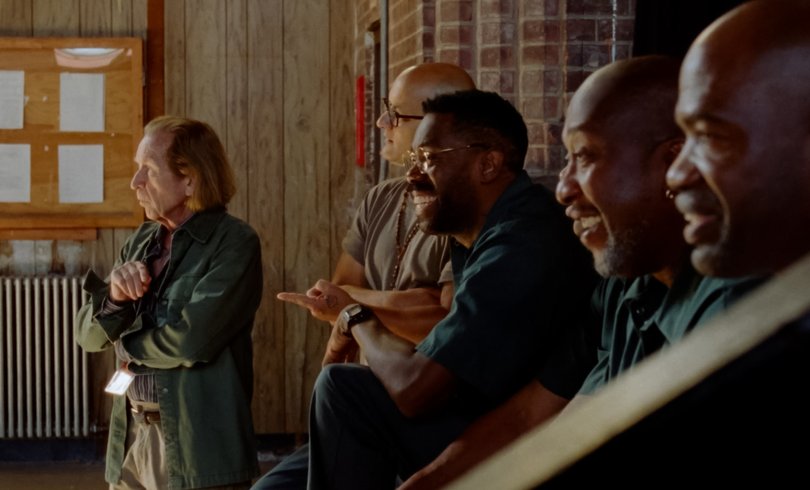Sing Sing review: Deeply compassionate prison drama with awards buzz hits high notes
Sing Sing isn’t a musical, but this story about humanity and art soars in a different way.

There’s something we need to get out of the way. Sing Sing features no singing, it’s not a musical. The title refers to the maximum security prison in upstate New York, you’ve probably heard it mentioned on Law & Order.
What it is, is a compassionate drama about the humanity of people we would rather forget, locked away behind bars and separated from the general populace. They have committed crimes (or at least many of them have while some were wrongly convicted) but that doesn’t make them not one of us.
What is our collective and personal conception of crime and punishment, and how does it relate to justice? Sing Sing, at a deeper level, will challenge you to ask those questions. Equally, it doesn’t impose those ethical examinations. Much like art generally, you take from it what you want.
Sign up to The Nightly's newsletters.
Get the first look at the digital newspaper, curated daily stories and breaking headlines delivered to your inbox.
By continuing you agree to our Terms and Privacy Policy.Inspired by a real-life Rehabilitation Through the Arts program at the actual Sing Sing, the film stars Colman Domingo as Divine G, an erudite inmate who is one of the core members of the institution’s theatre group.
A natural stage presence, a considered thinker and a writer, Divine G is the group’s de facto leader while they’re guided by an external theatre director, Brent (Paul Raci). Divine G and Mike Mike (Sean San Jose), who occupies the cell next to him, are on the hunt for a new member for the troupe when a spot opens up.

They decide to accept Clarence (Clarence Maclin), whose aggression belies a thoughtful soul who randomly picked up King Lear one day and connected to it.
The film’s arc follows the group’s production of an original piece that combines historical figures, comedy and time travel (oddly, not once does anyone mention Bill & Ted’s Excellent Adventure). There’s still a bit of Shakespeare thrown in, but Clarence beats Divine G to the part of Hamlet.
These scenes are naturalistic, almost as if they’re unstructured for that authenticity, as the inmates rehearse and find their characters.
Few would want to talk to actors about their craft but if you do, one thing that often comes through is that the art requires an emotional openness in the process. If you don’t allow yourself to be at least a little bit vulnerable, how are you able to be empathetic to the role you’re playing or your scene partners?
Watching the inmates, many of whom are played by real-life formerly incarcerated prisoners who have gone through the Rehabilitation Through the Arts program, be so open and earnest rather than closed and repressed is a powerful moment.

A scene when they share their fondest memories (an icy pole on a hot day, time spent with his dog) is a reminder that even in these situations, you cannot rob someone of their humanity.
Threaded throughout are beats about Divine G’s quest for clemency. Having already spent 25 years in prison for a murder he didn’t commit, he’s exhausted his appeals and there are few paths remaining. An impassioned plea during a hearing is met with cynicism.
It’s an extraordinarily compassionate performance from Domingo who never overplays a moment and allows his interpretation of Divine G to speak without judgement or sentimentality. He’s a shoo-in for an Oscars nod.
Maclin, a graduate of the real-life program, is also a firecracker. He’s playing a version of himself and his experiences, and there is so much clarity in his work, an emotional throughline for a man that feels incredibly real and familiar. He should be getting much more awards attention than he is.
The warm-hearted Sing Sing does not suggest that art can solve everything, especially the notoriously inequitable American prison system, but it does make a persuasive argument that it redeems us and connects us as people, to ourselves and to each other.
In the darkest of places, it may not be enough but it’s not nothing.
Rating: 4/5

